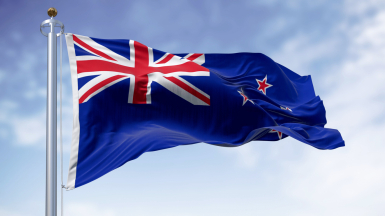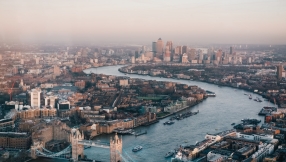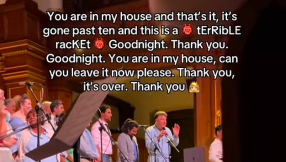
Following the House of Commons’ decision to vote in favour of assisted suicide, news from New Zealand has suggested that concerns of a “slippery slope” might well be founded.
In the year ending March 2025, the number of euthanasia and assisted suicide cases in the country jumped by more than a third (37.21 per cent). The figures, from the New Zealand Ministry of Health, show that 472 people were helped to end their lives during the period, up from 344 in the previous year.
The vast majority of these deaths (450) were via euthanasia, meaning they died after a medical professional administered a lethal substance to the patient. The remaining minority died via assisted suicide - the patient self-administered drugs provided by a medical professional.
Overall, 1.25 per cent of deaths in New Zealand were caused by euthanasia or assisted suicide during the period. Concerningly, of the hundreds who chose to die by these means, only 19 had a psychiatric assessment to determine if they were competent to make an informed decision, Right to Life UK reports.
A large number of those seeking assisted suicide (21 per cent) were not receiving palliative care when they applied for euthanasia, while 12 per cent said they had a disability. Ten per cent had a neurological condition.
While the demand for assisted suicide has increased in New Zealand, the supply has apparently decreased, with the number of doctors willing and able to conduct the process falling from 148 to 126.
White New Zealanders accounted for 80 per cent of assisted suicides, despite making up just 68 per cent of the population. By contrast, Maori, who represent 18 per cent of New Zealanders, accounted for just five per cent of assisted suicides.
Just as British opponents of assisted suicide warned of a slippery slope, so too did their counterparts in New Zealand.
Just a year after the process was legalised in 2021, there were attempts to remove the current requirement that only those who have been given six months or less to live may be eligible for assisted suicide.
Commenting on the data, Catherine Robinson, spokesperson for Right To Life UK, said that the "significant" increase in euthanasia and assisted suicide in New Zealand was "a cause for alarm".
“New Zealand appears to be following the same trend as other countries that have introduced euthanasia and assisted suicide legislation in recent years – a steep year-on-year increase in deaths through assisted suicide and euthanasia," she said.
Assisted suicide is not yet legal across Britain, but the Isle of Man recently became the first part of the British Isles to approve the practice. Although the House of Commons voted in favour of legalisation in England and Wales, the proposal has yet to pass in the House of Lords. Legislation to legalise assisted suicide in Scotland is making its way through the Scottish Parliament.













